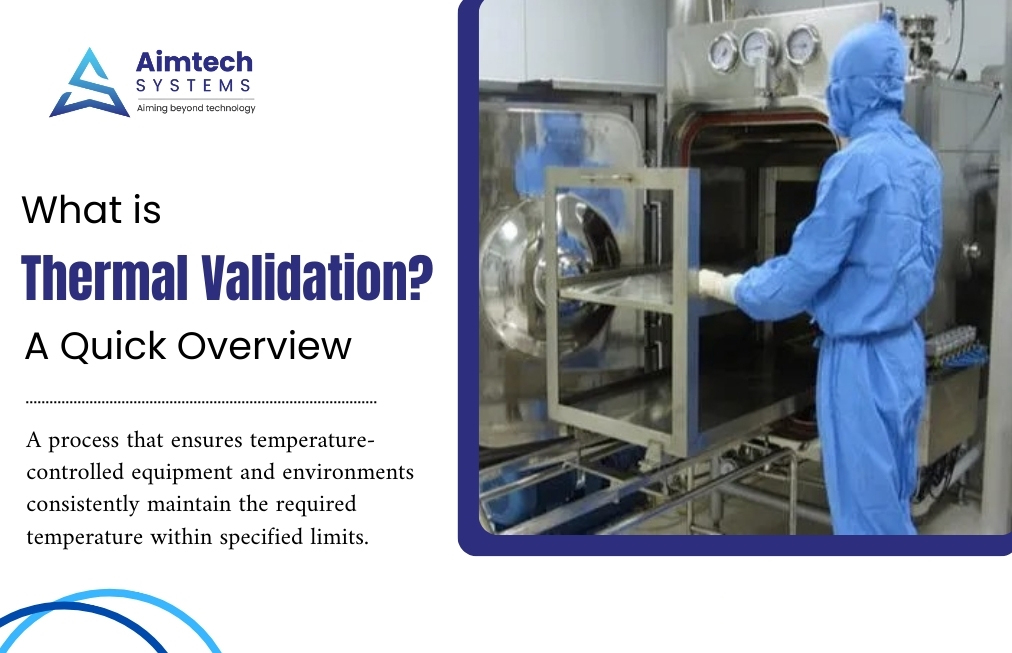
What is Thermal Validation?
Introduction
Thermal validation is a critical process in industries where temperature plays a key role in product quality, safety, and regulatory compliance. It ensures that temperature-controlled equipment, such as autoclaves, sterilizers, freezers, and ovens, operates within specified temperature limits to achieve consistent and reliable results. Industries like pharmaceuticals, biotechnology, food processing, and medical device manufacturing rely on thermal validation to prevent contamination, maintain sterility, and meet regulatory standards.
What is Thermal Validation?
Thermal validation is the process of verifying and documenting that temperature-sensitive equipment consistently meets predefined temperature requirements. This is done through rigorous testing, monitoring, and calibration to ensure that heat distribution and retention meet industry standards.
Key Steps in Thermal Validation
1️ Design Qualification (DQ)
- Ensures the equipment is designed according to required specifications and regulatory guidelines.
- Verifies that temperature control systems meet industry standards.
2️ Installation Qualification (IQ)
- Confirms that the equipment is installed correctly and matches design requirements.
- Checks hardware components, wiring, and control systems.
3️ Operational Qualification (OQ)
- Tests the equipment’s ability to operate at different temperature settings.
- Includes temperature uniformity, ramp-up time, and cooling efficiency tests.
4️ Performance Qualification (PQ)
- Validates that the equipment performs reliably under actual working conditions.
- Conducts real-time monitoring of temperature cycles and verifies consistency.
5️ Routine Monitoring & Revalidation
- Ensures ongoing compliance through periodic checks and recalibrations.
- Identifies deviations or potential failures before they impact product quality.
Why is Thermal Validation Important?
✅ Ensures Product Safety & Quality
Prevents contamination and maintains sterility in critical processes.
✅ Regulatory Compliance
Meets industry standards such as GMP, FDA, ISO 17025:2017, ISO 9001:2015, and WHO guidelines.
✅ Reduces Risk of Failures
Identifies temperature inconsistencies before they cause production issues.
✅ Optimizes Efficiency
Ensures energy-efficient and effective heating or cooling processes.
Conclusion
Thermal validation is an essential process in temperature-sensitive industries, ensuring that equipment operates within strict temperature parameters to maintain product quality and safety. By following proper validation protocols, companies can comply with industry regulations, reduce risks, and enhance operational efficiency. Regular monitoring and revalidation help maintain long-term consistency, making thermal validation a cornerstone of quality assurance.




